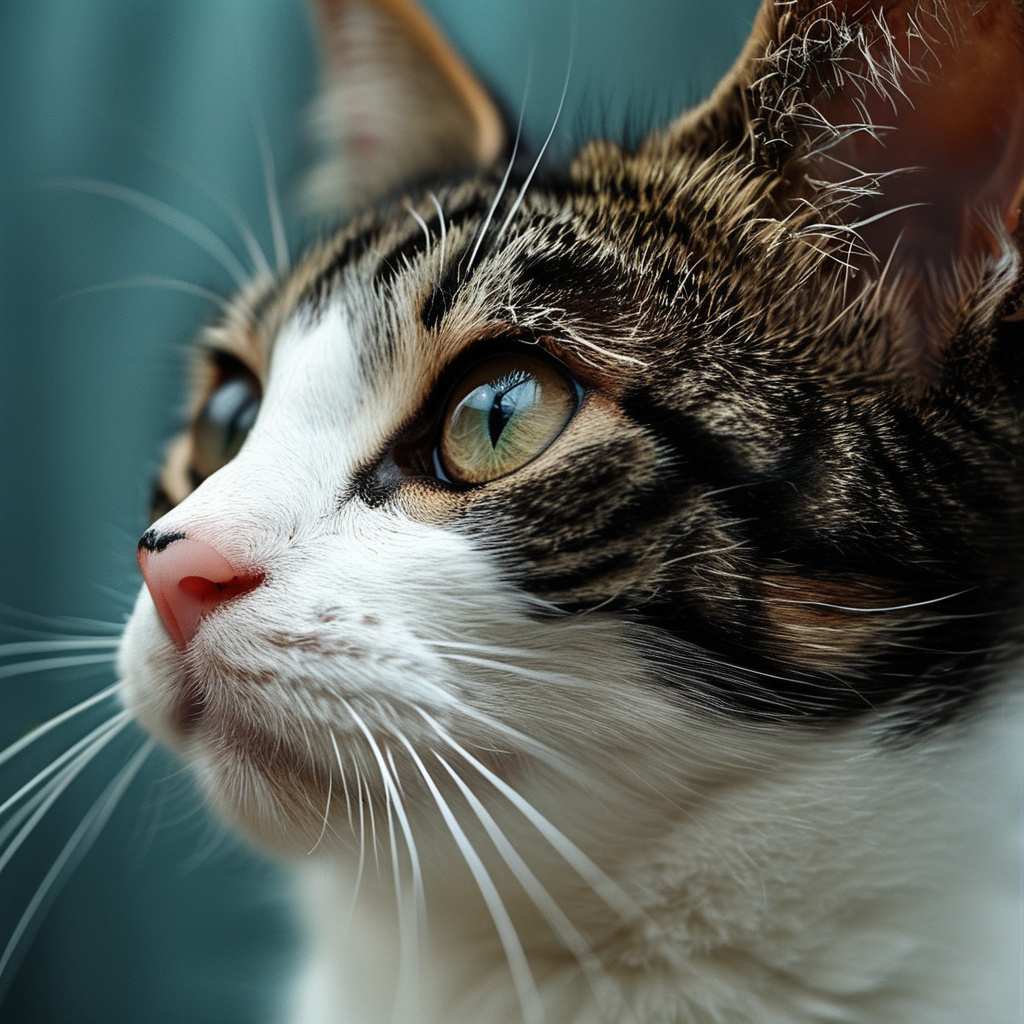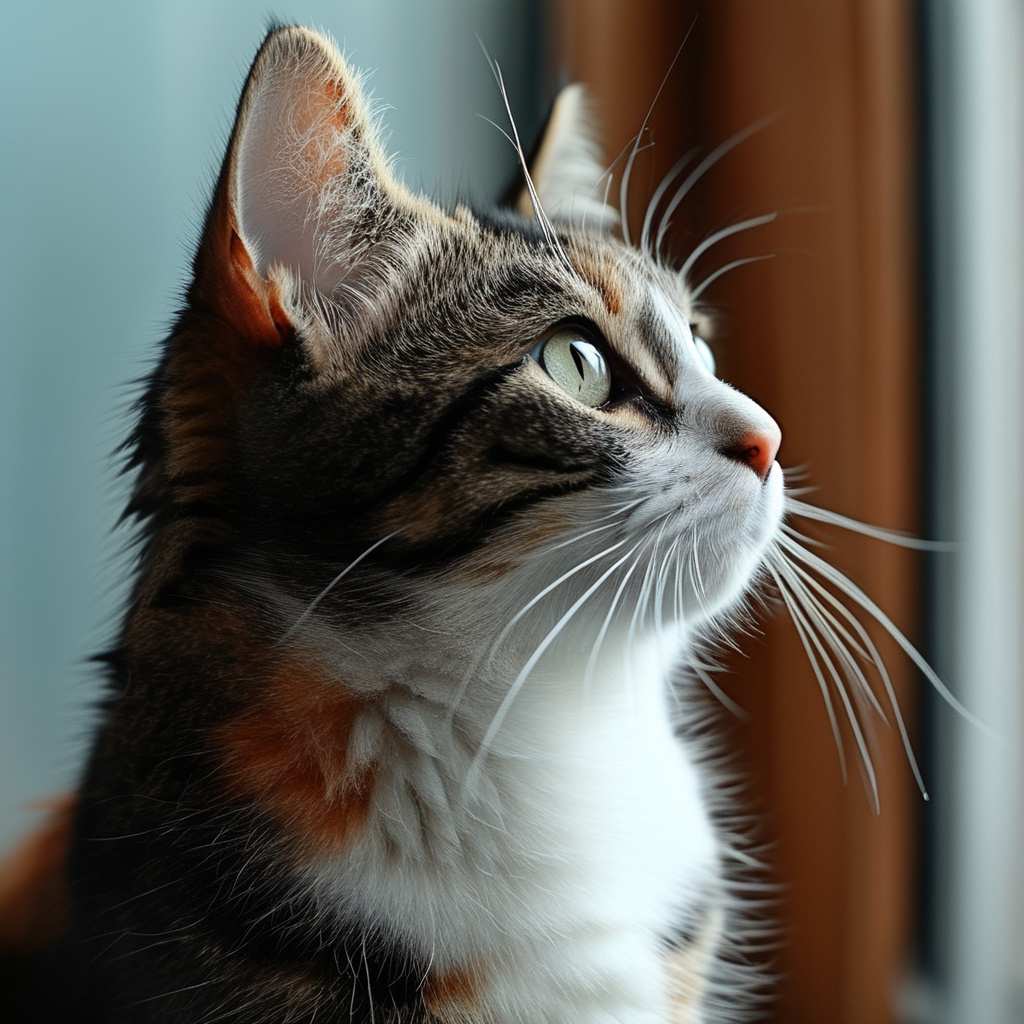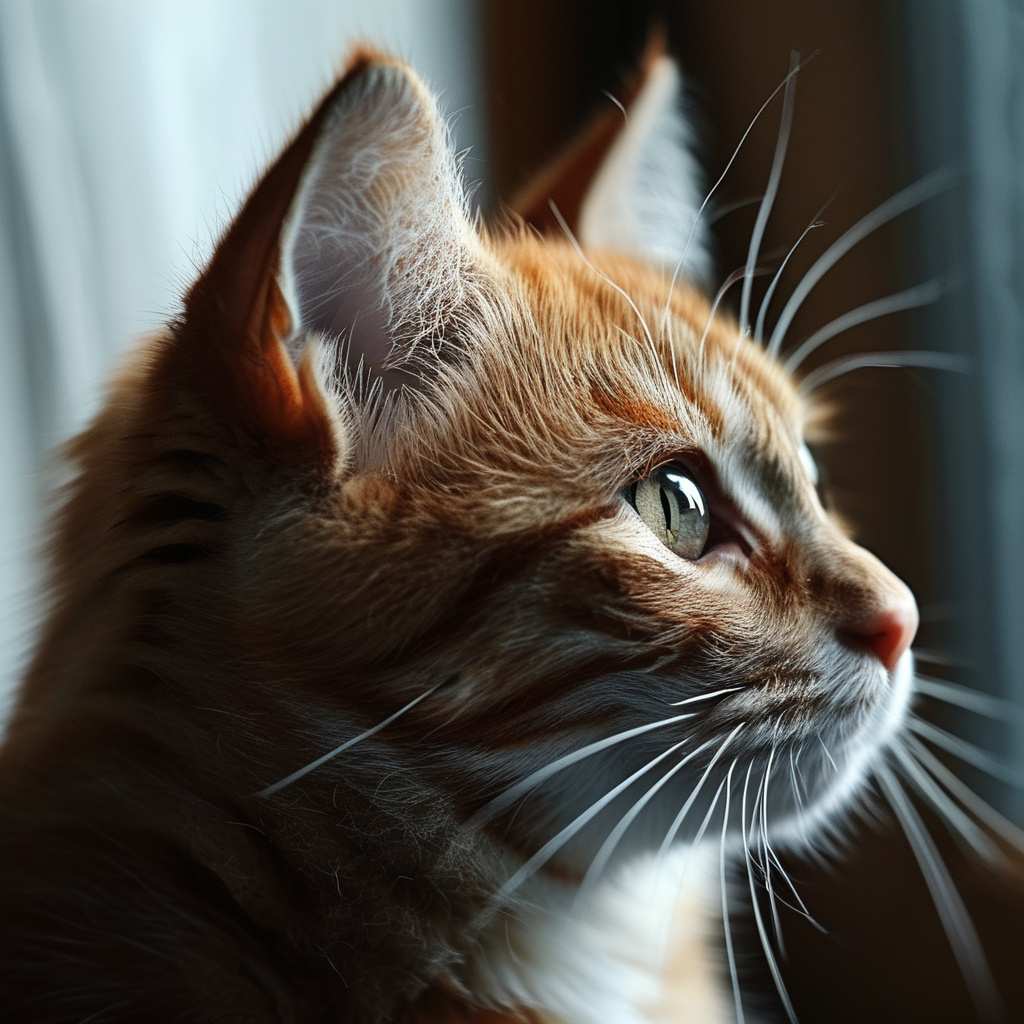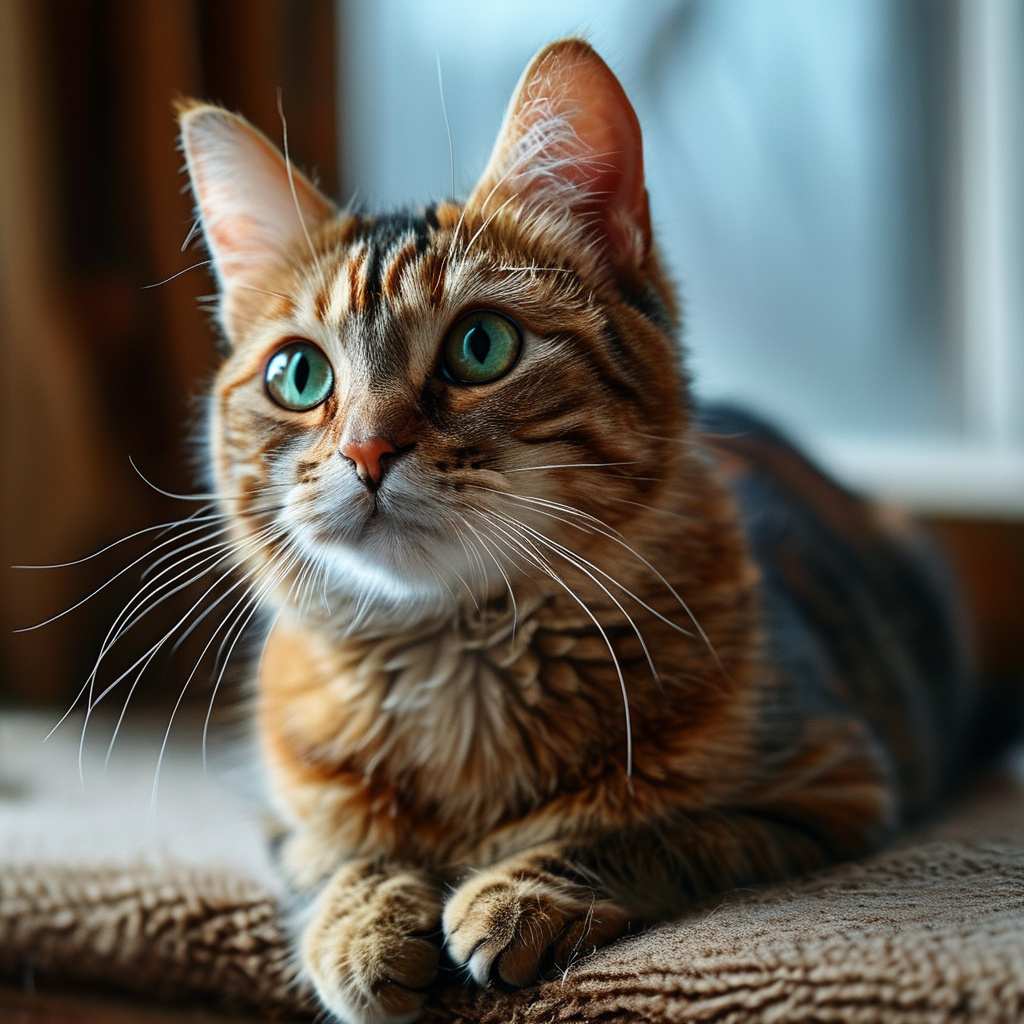Introduction:
Cat diarrhoea is a common but concerning condition that can arise from various causes, ranging from simple dietary changes to more severe health problems. While some cases may resolve on their own with home remedies, diarrhoea can also signal underlying issues such as viral infections, poisoning, or organ failure. It’s crucial for cat owners to monitor their pets closely when diarrhoea occurs, as prompt intervention may prevent complications. This guide explores the possible causes, home treatments, and when to seek veterinary help to ensure the well-being of your feline friend.
 Cat diarrhoea is a condition that can have many causes. Some are trivial, so you can cure your pet with homemade remedies. However, sometimes your cat’s diarrhoea is a symptom of a more serious illness. This is a symptom that should never be underestimated.
Cat diarrhoea is a condition that can have many causes. Some are trivial, so you can cure your pet with homemade remedies. However, sometimes your cat’s diarrhoea is a symptom of a more serious illness. This is a symptom that should never be underestimated.
Related Post: The Loyal and Lively West Highland White Terrier: A Playful Companion with a Strong Personality
The stool of a healthy, well-fed cat should have a compact consistency. The cat usually defecates once a day. A cat with diarrhoea will defecate much more frequently, and the stool will be loose, watery, or mucous.
Causes of diarrhoea in cats
Diarrhea in cats is not a disease but a symptom. To cure an animal, the cause of the illness must be determined, although it is also worthwhile to treat the symptoms. Stopping diarrhoea will prevent dehydration and make your cat feel better.
Related Post: The Power of Cuddling: Building Bonds Between Humans and Animals
Depending on the cause of diarrhoea, the course of diarrhoea may vary from cat to cat. In the short term, about a day, and not accompanied by other symptoms, it should be considered a mild form. Possible causes of this condition include
A sudden change in diet,
 Insufficient quantity or quality of food,
Insufficient quantity or quality of food,
Food poisoning (after eating bad food or a poisonous plant),
Irritation of the digestive system, e.g. by foreign objects or food that is indigestible for the cat (it is worth knowing that most adult cats cannot digest lactose, so diarrhoea can be caused by drinking milk),
Reaction to medication,
vaccination,
parasites
severe stress (e.g., due to a change of residence).
Diarrhoea in a kitten that has not been dewormed is very often caused by parasites in the digestive tract.
If a cat is suspected of being poisoned, it is important not to delay a visit to the veterinarian. It is best to show the veterinarian a piece of the plant you suspect the cat has eaten. Plant poisoning is a life-threatening condition, and every minute counts.
Related Post: The Majestic Maine Coon: The Giant with a Gentle Soul
 The causes of diarrhoea in cats can be much more serious. Severe diarrhoea can be associated with a viral or bacterial infection. Infectious diseases in cats that are often associated with diarrhoea include panleukopenia, feline AIDS (FIV), and feline infectious peritonitis (FIP). Diarrhoea is also caused by the bacteria Clostridium perfringens or Escherichia coli. When infected, diarrhoea can last up to two weeks and is characterized as acute. It is often accompanied by other symptoms such as vomiting, loss of appetite, fever, blood in the stool, and apathy.
The causes of diarrhoea in cats can be much more serious. Severe diarrhoea can be associated with a viral or bacterial infection. Infectious diseases in cats that are often associated with diarrhoea include panleukopenia, feline AIDS (FIV), and feline infectious peritonitis (FIP). Diarrhoea is also caused by the bacteria Clostridium perfringens or Escherichia coli. When infected, diarrhoea can last up to two weeks and is characterized as acute. It is often accompanied by other symptoms such as vomiting, loss of appetite, fever, blood in the stool, and apathy.
Prolonged diarrhoea in a cat is usually caused by a serious digestive disorder. If the condition persists for many weeks, it may indicate liver or kidney failure or even an ongoing cancer process.
Home remedies for diarrhoea in cats
The onset of diarrhoea in a cat should be a signal for the caregiver to observe the cat closely. If the animal behaves normally – it is active, does not lose its appetite, the third eyelids are not visible, and there are no other symptoms – you can try a hunger strike of a few hours (remember to give your pet constant access to fresh water) – but no longer than 8-10 hours, because then the damage to the cat’s liver begins, and then a highly digestible diet for a few days. Symptomatic diarrhoea can be prevented by giving the cat any of the available medications after consulting with your veterinarian. Mild diarrhoea will subside after a day.
Related Post: Veterinary Osteopathy: A Holistic Approach to Animal Health and Wellness
 How do I treat diarrhoea in a cat?
How do I treat diarrhoea in a cat?
If diarrhoea is accompanied by other symptoms or persists throughout the day, do not treat your cat alone. You should take your cat to your veterinarian, who will diagnose the cause of the condition and recommend treatment. The veterinarian will also ask the groomer questions. If an infection is suspected, a stool test and a blood test may also be done. If the symptoms indicate a more serious condition, an ultrasound may be necessary.
Treatment for diarrhoea in cats depends on the cause. Your veterinarian may recommend a change in diet, deworming, antibiotic therapy, or even surgery. With chronic feline diarrhoea, the body is quickly exhausted. Therefore, any treatment must be accompanied by intensive hydration, often including intravenous supplementation with electrolytes, vitamins, and proteins. It is also advisable to use probiotics to supplement the intestinal bacterial flora.
Conclusion:
Diarrhoea in cats, though often manageable, should never be underestimated. While mild cases can be treated at home with dietary adjustments and close observation, persistent or severe diarrhoea may point to serious health issues requiring professional care. Always monitor your cat for other symptoms and consult a veterinarian if the condition worsens or lasts beyond a day. With the right care, your cat can recover quickly, but early action is key to avoiding further complications.
FAQs:
- What are the most common causes of diarrhoea in cats?
Common causes include sudden diet changes, poor food quality, food poisoning, lactose intolerance, medication reactions, stress, or parasites. - How can I treat my cat’s diarrhoea at home?
You can try a brief fast (no longer than 8-10 hours) followed by a highly digestible diet. Always provide fresh water and consult a vet for medication options. - When should I take my cat to the vet for diarrhoea?
If the diarrhoea persists for more than a day, or if it is accompanied by vomiting, loss of appetite, blood in the stool, or lethargy, a vet visit is necessary. - Can parasites cause diarrhoea in cats?
Yes, especially in kittens that haven’t been dewormed. Parasites can cause digestive issues leading to diarrhoea. - How long does it take for a cat to recover from diarrhoea?
Mild diarrhoea typically resolves within a day. However, if caused by infections or serious health conditions, recovery may take longer and require veterinary treatment. - Is diarrhoea in cats always a sign of a serious illness?
Not always. While it can result from simple issues like diet changes, diarrhoea can also indicate more severe problems such as infections or organ failure. - Can I give my cat human medications to stop diarrhoea?
No, human medications should not be given to cats without veterinary guidance, as they can be harmful.
References:
- VCA Animal Hospitals: Diarrhea in Cats
- PetMD: Diarrhea in Cats – Causes and Treatment
- The Honest Kitchen: Cat Diarrhea – Causes and Remedies
- American Veterinary Medical Association: Diarrhea in Cats
- CatTime: Cat Diarrhea – Causes and Treatment
- Humane Society: Understanding Cat Diarrhea
- ASPCA: Cat Diarrhea – Common Diseases
